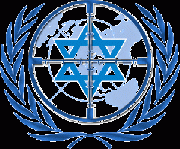Amid the applause in New York and the celebrations in Ramallah, few seem to have paused to consider where the Palestinian bid for statehood is ultimately leading.
The Palestinian application, handed to United Nations Secretary General Ban Ki-moon last week, will now disappear from view — possibly for some time — while the United States and Israel try to devise a face-saving formula to kill it in the Security Council. In the process Washington will reveal its hypocrisy on the Middle East to the world, infuriate the Arab publics and ensure that Palestinians jump ship on the two-state solution.
If Mahmoud Abbas, the long-suffering head of the Palestinian Authority, has achieved anything for his people at the UN, it is not imminent statehood but the fatal discrediting of the U.S. as arbiter of a Middle East peace. U.S. President Barack Obama’s promised veto on a Palestinian state declares the demise not only of the Oslo process but also of the U.S. role as an honest broker.

|
| In telling the Palestinians there was “no shortcut” to statehood — after they have already waited more than six decades for justice — the U.S. president revealed his country as incapable of offering moral leadership on the resolution of the Israeli-Palestinian conflict. If Mr. Obama is this craven on Israel, what better reception can the Palestinians hope to receive from a future U.S. president? |
In telling the Palestinians there was “no shortcut” to statehood — after they have already waited more than six decades for justice — the U.S. president revealed his country as incapable of offering moral leadership on the resolution of the Israeli-Palestinian conflict. If Mr. Obama is this craven on Israel, what better reception can the Palestinians hope to receive from a future U.S. president?
One guest at the UN had the nerve to politely point this out in his speech. Nicolas Sarkozy, the French president who himself appears to be wobbling from his original support for a Palestinian state, warned that U.S. control of the peace process needed to end.
“We must stop believing that a single country, even the largest, or a small group of countries can resolve so complex a problem,” he told the General Assembly. His suggestion was for a more active role for Europe and the Arab states at peace with Israel.
Mr. Sarkozy appeared to have forgotten that just such a widening of responsibility for solving the conflict was undertaken in 2002 with the creation of the Quartet — comprising the U.S., the European Union, Russia and the United Nations. Israel and the U.S., then led by President George W Bush, reluctantly agreed to the Quartet’s formation as a way to restore Palestinian faith in the peace process. The Palestinians believed they had been betrayed by the Americans at Camp David in 2000.
The Quartet has been little better than the U.S. as an honest broker, not least because its officials have never strayed far from the Israeli-Washington consensus. True to form, the Quartet responded to Mr Abbas’s statehood bid by limply offering him instead more of the same — talks that have gone nowhere for two decades.
The Palestinian leadership’s move to the UN, effectively bypassing the Quartet, certainly widens the circle of responsibility for Middle East peace. It also neatly brings the Palestinians’ 63-year plight back to the world body.
But Mr. Abbas’s application will quickly expose how powerless the UN is to intervene in an effective way. Statehood depends on a successful referral to the Security Council, which is dominated by the U.S. The General Assembly is much more sympathetic but can confer no more than a symbolic upgrading of Palestine’s status, putting it on a par with the Vatican.
So the Palestinian leadership is stuck. We are entering a new phase of the conflict in which the formal structures of diplomacy will become irrelevant. The U.S., Europe and the UN will have only a marginal part to play in these developments.
The Palestinian old guard are soon to be challenged by a new generation familiar with social media, who know how to organize a popular mass movement, and who refuse to be bound by the borders that trapped their parents and grandparents. The new Palestinian leaders will appeal over the heads of the gatekeepers, turning to the court of global public opinion. Polls show that in Europe and the U.S., ordinary people are far more sympathetic to the Palestinian cause than their governments.
The first shoots of this revolution were evident in the Palestinian youth movement that earlier this year frightened Mr. Abbas’s Fatah party and Hamas into creating a semblance of unity. Their rallying cry will be one person-one vote in the single state Israel currently rules over.
Events at the UN have created a new clarity for Palestinians, reminding them that there can be no self-determination until they liberate themselves from the legacy of colonialism. The old men in suits have transparently failed them.






Leave a Reply